Warning
Seek urgent medical attention if kernel is eaten.
Description
Spreading evergreen tree to about 20m, native to north eastern and central Queensland sometimes cultivated as an ornamental.
Fragrant small white flowers with five petals up to 1cm across and clustered at the ends of branches.
Alternate leaves mostly crowded towards the ends of branches. Mature leaves ovate with densely pubescent juveniles often 3 to 5 lobed, and petioles (leaf stems) of up to 20cm. Leaves can measure 10 to 30cm long and 4 to 30cm wide with two clearly visible glands at the base of the leaf.
Toxicity
Symptoms
Eating the raw kernel in the seed can cause abdominal cramps, severe vomiting and diarrhoea. The sap can cause contact dermatitis.
Images
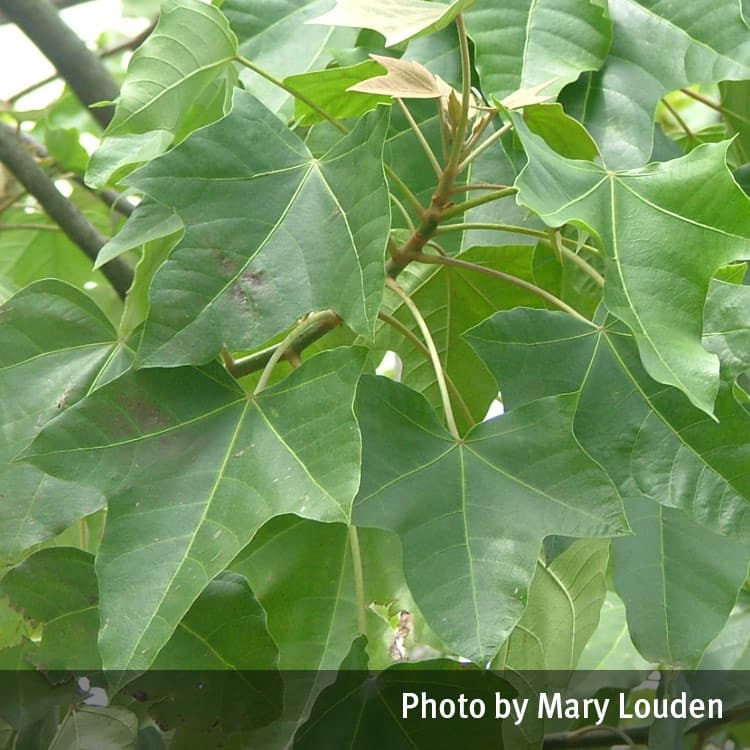
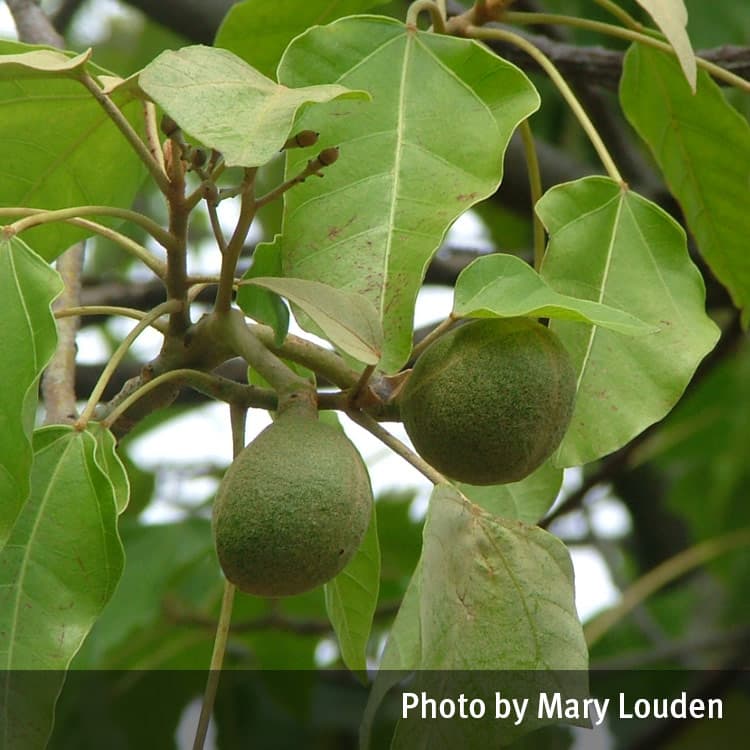
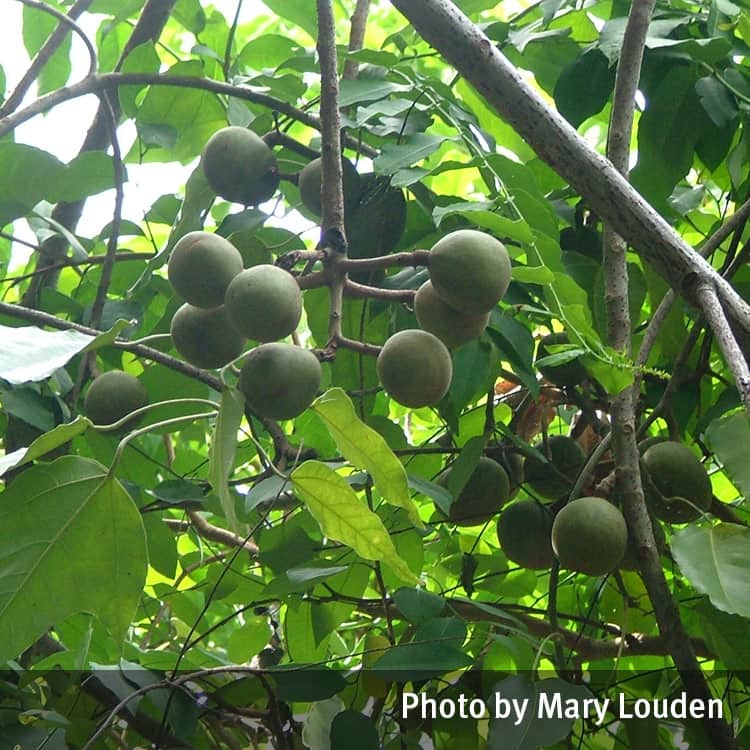
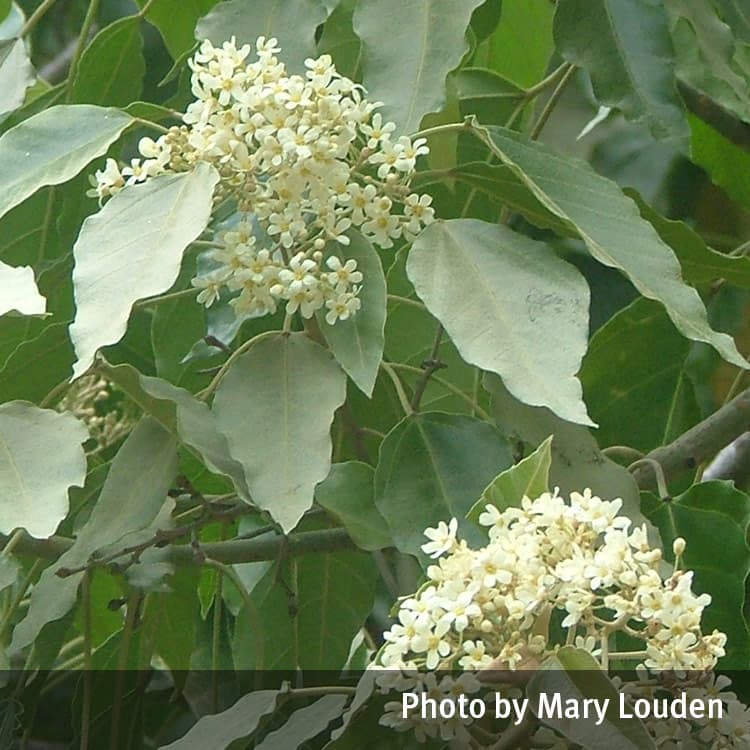
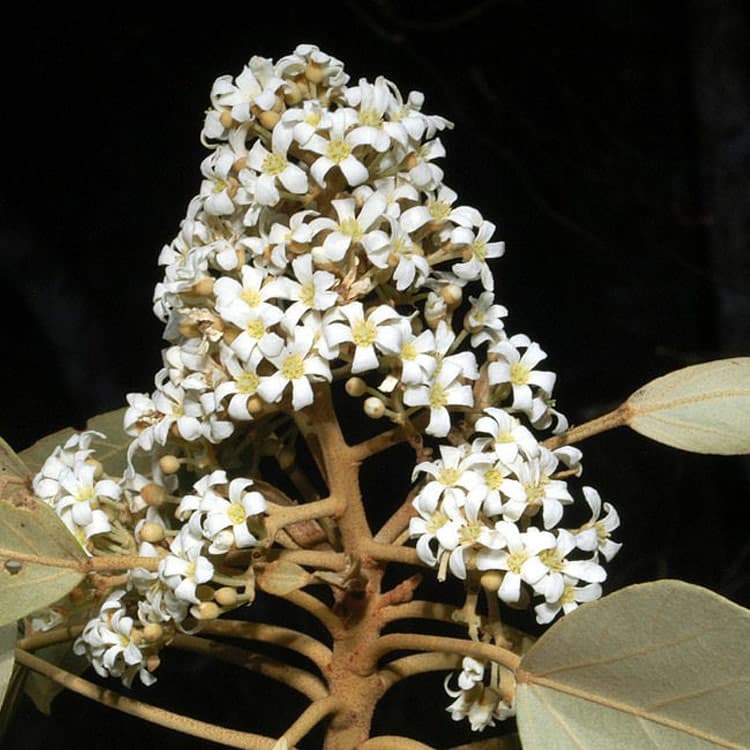
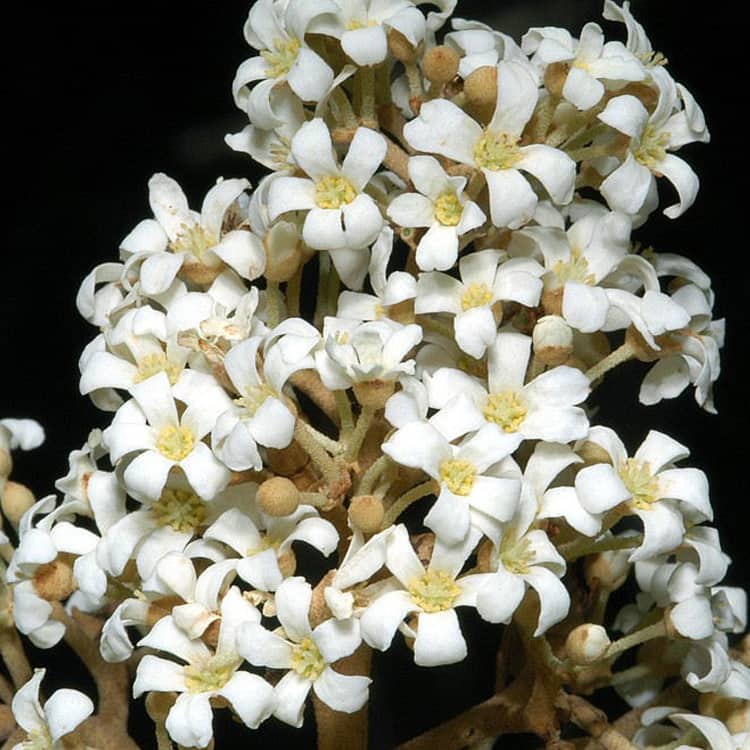
Details
Common name: Candle nut
Botanical name: Aleurites moluccanus
Other common names: Candleberry, Indian walnut, Varnish tree
Family: Euphorbiaceae
General description: Spreading evergreen tree to about 20m, native to north eastern and central Queensland sometimes cultivated as an ornamental.
Flowers: Fragrant small white flowers with five petals up to 1cm across and clustered at the ends of branches.
Leaves: Alternate leaves mostly crowded towards the ends of branches. Mature leaves ovate with densely pubescent juveniles often 3 to 5 lobed, and petioles (leaf stems) of up to 20cm. Leaves can measure 10 to 30cm long and 4 to 30cm wide with two clearly visible glands at the base of the leaf.
Fruit/Berries: The round brown fruit are 5 to 6cm (sometimes up to 8cm) in diameter with 3 to 4 ridges and contain up to 4 hard black seeds.